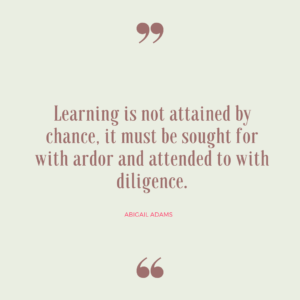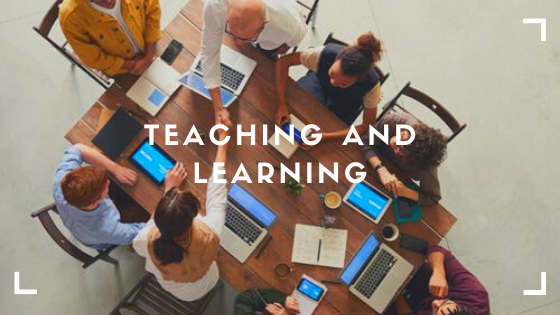“I am always ready to learn although I do not always like being taught.” Winston Churchill
Once upon a time, I thought that my students were like empty vessels, waiting for me to pour needed information into them. When they were full of whatever I poured into them, they would be able to do something, speak intelligently, or act upon the information. I was new to teaching adults, just able to drink legally myself, and scared out of my mind that I would say or do something wrong in front of my class. Many of my students were older than I.
My favorite classroom activities involved drills and simple games. I honestly didn’t know any better, and this is what I was taught to do with the students. They were learning a foreign language and needed the repetition. Never mind no one understood how to use what they were saying. That would be a lesson for a different day, in a different class. So, I kept repeating the verb conjugations and sentence structure. They did learn something, I’m sure. My students tested highest on the department exams. I knew what to teach them.
Fast forward several years to a different place and a different subject. There is nothing to drill these students on. They are more skeptical about the validity of what I’m presenting than those students learning a foreign language. I had to find new techniques and skills to reach these students. I had to understand that they do not always like being taught. For this group, learning how to must lead to application.
It makes sense to me that I have evolved in my teaching as I’ve grown older and observed how others teach. I couldn’t depend on the way I was teaching people over time. I had to accept that my students are not in class for me to fill them up with information that they should process on their own, outside of class. What I teach needs to be relevant and compelling. They want to learn, but they don’t like being taught.
This might seem evident, but I know instructors and trainers who are still simply lecturing to students and don’t seem to care whether what they say resonates with the them. They read slides from a PowerPoint presentation, droning on about whatever with little regard for the learners they are charged with teaching. If adult students and professionals are constantly told they know less than they thought they did, they will not respond to the message. Eventually the only people left in these classes will be the instructors and the few people who absolutely need to take the class on that day at that time. Adults vote with their feet.
 I choose to focus on application of skills and ideas. We discuss, we practice, we wrestle with the topic until we (notice it’s not I or they) work together to learn and become better at what we do. Each time I step in front of a group of people with the charge to teach or train, I need to be better at what I do than the last time. This is how I approach the privilege of being a trainer. I help people achieve something they want or need through my instruction.
I choose to focus on application of skills and ideas. We discuss, we practice, we wrestle with the topic until we (notice it’s not I or they) work together to learn and become better at what we do. Each time I step in front of a group of people with the charge to teach or train, I need to be better at what I do than the last time. This is how I approach the privilege of being a trainer. I help people achieve something they want or need through my instruction.
I am most certainly a different teacher/trainer today than I was at the start of my career. I believe this is due to one small question that I ask myself when I get ready to teach: Why is this important? More specifically: Why is this topic/skill/tool important for the students in my class today? If I can answer that question, then I know that I can confidently stand in front of the group and lead them through the syllabus for that session. Asking the question does not absolve me from presenting the material in an entertaining and relevant manner. It does not mean I can just tell stories or read from PowerPoint slides. I have to engage my learners.
My students may be ready to learn, but they don’t like to be taught.

